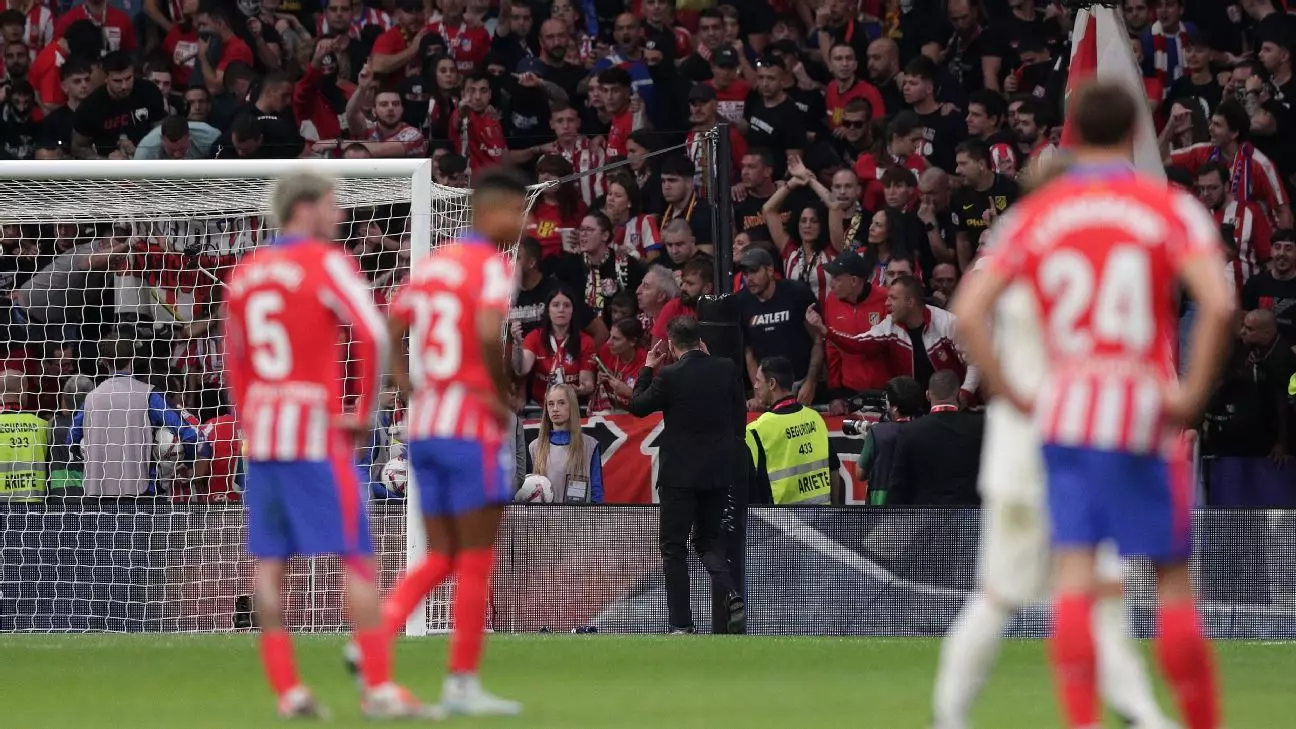The recent Madrid Derby between Atlético Madrid and Real Madrid turned out to be more than just a battle between two of the most storied clubs in LaLiga; it became a grim reminder of the responsibilities that come with fandom. Following an incident that caused the game to be temporarily halted, Atlético Madrid faces significant repercussions: a three-match partial stadium closure and a hefty fine of €45,000 (approximately $49,000). This situation raises critical questions about fan conduct, club responsibility, and the broader implications for football culture as a whole.
The match itself was marked by a tense atmosphere, particularly after Éder Militão scored for Real Madrid, igniting a series of emotional reactions among fans. Shortly after this goal, the match was interrupted when a collection of objects, including lighters and plastic bottles, were hurled onto the pitch from the stands. This interruption lasted approximately 15 minutes, altering the flow of the game and putting both teams in an uncomfortable position. When play resumed, Atlético managed to equalize through Ángel Correa, finishing the match at 1-1.
This act of misconduct from a segment of the crowd necessitated immediate action from the Spanish football federation’s competition committee. The decision to impose a three-game closure of the Fondo Sur, the section of the stadium from which the projectiles were launched, signifies a broader approach to mitigating fan-related incidents in sports. Atlético Madrid’s management has declared their commitment to identifying and sanctioning those responsible, already issuing a permanent ban to one fan linked to the incident.
In light of this incident, Atlético Madrid has announced intentions to revise its entry regulations. Plans to ban attire that conceals the identities of fans, such as balaclavas, represent an important step toward preventing similar situations in the future. This reinforces the need for clubs to initiate proactive measures rather than reactive ones, highlighting the pivotal role of management in fostering a safe and respectful environment during matches.
The comments from Atlético’s coach, Diego Simeone, and captain Koke further articulate the delicate balance between fans and players. They acknowledged the irresponsibility of the actions taken by fans while also emphasizing that player antics can provoke escalated responses from the crowd. This creates a complex interplay between team dynamics, player behavior, and fan interaction, suggesting a communal responsibility that extends beyond just the spectators.
Amidst the chaos, Real Madrid’s coach, Carlo Ancelotti, commended the referee, Mateo Busquets Ferrer, for his decisive action in stopping the match, particularly after repeated warnings to the crowd were ignored. This highlights an essential aspect of match officiating: maintaining control in explosive situations is paramount to ensuring player safety and the integrity of the sporting event itself.
As football continues to grapple with the implications of fan behavior, this incident serves as a reminder of the potential consequences that arise from moments of passion and frustration. With Atlético Madrid facing penalties, the incident underscores the necessity for all stakeholders—clubs, players, fans, and officials—to work cohesively towards maintaining the spirit of the game. Looking ahead, it’s crucial that lessons be learned from this episode to uphold the values of respect and sportsmanship that lie at the heart of football.
